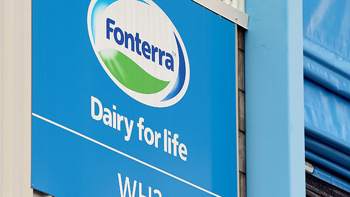
The National Party has announced a plan to bring back targets for wait times and cancer treatment and provide financial incentives for GP clinics to lift immunisation rates.
National leader Christopher Luxon is making the announcement alongside health spokesman Shane Reti at Health New Lynn Medical Centre in Auckland.
“Every single health outcome has gone backwards over the past six years,” Luxon said.
“National will bring back health targets because they save lives.”
The five major targets are:
* Shorter stays in emergency departments. 95% of patients to be admitted, discharged or transferred from an emergency department within six hours.
* Faster cancer treatment. 85% of patients to receive cancer management within 31 days of the decision to treat.
* Improved immunisation. 95% of two-year-olds to get their full age-appropriate immunisations.
* Shorter wait times for first specialist assessment.
* Shorter wait times for surgery.
The specific targets for the last two goals will be set once the party is in Government, if elected, National says. Reti said the Labour Government had not yet published the information necessary to establish the targets.
Reti said waiting targets and cancer targets were the most urgent.
“We are very determined to move the funding back from the centre to the frontline”.
Results would be published every quarter for each region.
“Having transparent targets with regular, robust reporting helps identify where the system is falling short and focuses effort on improving outcomes,” Reti said.
Luxon was quizzed on whether he would rule out dealing with parties that have anti-vax candidates.
He would not answer that question. “I don’t know who has anti-vax candidates and not.”
“I’m more focussed on the National party’s health policy than other parties.”
National would also establish a one-off Immunisation Incentive payments programme for GP clinics to lift childhood immunisations for two-year-olds, measles mumps and rubella immunisations in under 18s, and improve the flu vaccination rate in those aged 65 and over.
“Under the Immunisation Incentive Payments plan, GP clinics will be eligible for a one-off payment of $10 per enrolled patient on their books, provided they lift childhood immunisations, MMR vaccinations and flu jabs by five percentage points among eligible patients before June 30, 2024.”
Today’s announcement is the latest in a series of policies by the party for its health plan if it wins the election.
National has already announced it will allow nurses to come on six-month visas to look for a job in cases where they do not have a job offer in hand and will offer relocation grants to up to 1000 nurses coming from overseas.
Its policy would see the government pitch in up to $4500 a year for the first five years of the careers of nurses and midwives - a move National calculates would increase their take-home pay by $87 a week and make them $22,500 better off over those five years.
/cloudfront-ap-southeast-2.images.arcpublishing.com/nzme/CQ3PZWOS7RCYXNIVKUKF5LT6F4.jpg)
Health Minister Ayesha Verrall and National Party spokesman Shane Reti. Photo / NZME composite
In return, nurses and midwives would have to sign a binding agreement to commit to working in New Zealand for at least five years. It would also be open to nurses and midwives who had recently graduated in the past five years on a pro-rata basis. For example, a nurse who graduated three years before the policy came into effect would qualify for it for two years.
Health Minister Ayesha Verrall said National’s offering would not be enough to attract more nurses into the profession.
“We know the most effective way to grow our nursing workforce is to pay our nurses fairly.”
She said the previous National government had only given nurses pay rises totalling 15 per cent over its nine years. Under Labour since 2017, graduate nurse base salaries had risen 35 per cent from $49,400 to $66,700 and the top step base salary for Registered Nurses had risen 43 per cent from $66,700 to $95,300.
That put nurses on similar base salaries to those in Australia.
The National Party also wants to bring back the $5 prescription fee for those who can afford it and use the money for 13 cancer treatments available in Australia but not in New Zealand.
The treatments would provide “substantial clinical benefit”, according to the NZ Cancer Control Agency, for lung, bowel, kidney, skin, and head and neck cancers.
The treatments would be available to all patients with clinical need, as assessed by their doctors, National leader Christopher Luxon said today while visiting Southern Cross Hospital in Auckland.
The announcement is being welcomed by the Cancer Society, but the Prostate Cancer Foundation says it is “cruelly silent” about prostate cancer treatments.
The cost would be $280 million over four years, funded by altering the Government’s scrapping of prescription fees that was announced in this year’s Budget at a cost of $620m over four years.
National initially opposed the scrapping of the fees, but later said the fee should only be scrapped for those who can’t afford it.
“National will allocate $280 million in ring-fenced funding to PHARMAC over four years to pay for these therapies,” Luxon said.
/cloudfront-ap-southeast-2.images.arcpublishing.com/nzme/QG2CZJLYQZE6TNGU5IYZYWO5SE.jpg)
Costings for National's plan to fund more cancer treatments.
“We think this is a better use of taxpayers’ money than paying $5 prescription fees for everyone, including those who can afford to pay it themselves. Under National, superannuants and those on low incomes will receive free prescriptions (via the Community Services Card or SuperGold Card).
“For everyone else, the total amount any family will pay for prescriptions in a year will be capped at $100.”
National estimates that this change would reduce the cost of the prescription subsidy by about $316 million over four years.
“The remaining savings will remain in the health budget,” National’s policy document says.
Labour leader Chris Hipkins said the policy was “smoke and mirrors”, taking medicines from one group and giving them to another.
He said Labour planned to continue growing Pharmac’s funding if re-elected, which the Government had been doing.
He also warned that politicians needed to be careful about picking and choosing medicines, noting Pharmac’s independence.
Take your Radio, Podcasts and Music with you









